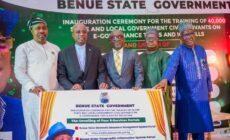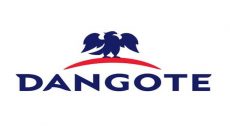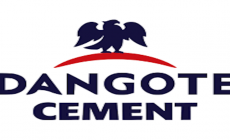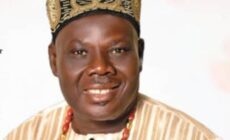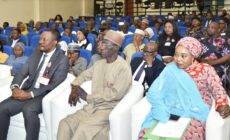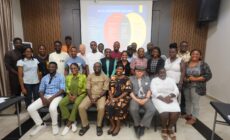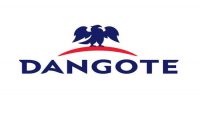By Martins Odeh
Gradually, but steadily, the grandiloquence narrations of the acclaimed outright under-performance of the Nigeria’s Free Trade Zones’ concept in the last 29 years of its adoption to drive the country’s industrialisation is been obliterated by new crop of data mavens using the latest digital infrastructure to capture, analyse and measure the contributions of this concept to the country’s Gross Domestic Product (GDP) and national growth more succinctly.
Indeed, the Federal Government having seen the way and manner China, Dubai in the United Arab Emirate and the western world had leveraged on this global economic model to speed up their socio-economic growth, embraced it in 1992 with an enactment that bestows NEPZA with the sole powers to monitor and manage the structure.
Successive management teams of the Authority had ensured that this concept that provides the filaments for this special business ecosystem is guided; leaving the country with two public zones and 43 private zones harbouring over 500 enterprises with cumulative investments worth over US 20 billion dollars, and accelerating employment generation hovering around 50,000 direct jobs and about 100,000 indirect jobs respectively.
Now with Prof. Adesoji Adesugba in the saddle as Managing Director and Chief Executive Officer, a more resilient and result oriented monitoring and management strategies are been deployed to reposition the zones’ operation for effective monitoring and measuring of the various contributory indices to national growth.
Adesugba, been a thoroughbred Professor of Business Administration and a tested Investment Promoter, has in the last one year focused on unmaking and tweaking the nation’s free zone susceptibilities by also widening the scope of search for innovation, business quality control mechanism and other forms of sophisticated approaches that could transform the country’s free zones into genuine business destination hot spots.
The public must come to the understanding that the free zone scheme is a global concept and not a Nigeria’s concept, and therefore, leaves us with no option but to strictly adhere to its modus operandi in order to fully reap from the structure. No wonder, the new management has spent quality time in educating and sensitizing key stakeholders on the ideals of this business enclave.
“The choice of this topic stems from the backdrop of the knowledge gap that exists in the free trade zone scheme in our nation. This is not much to do with the lurks and perks of the scheme as it is with our inability to genuinely leverage on the pros and cons of the scheme like other nations that are making success of it.
“Free Trade Zone refers to an area enclosed by a fence or wall with supervised entry and exit points where certain economic fiscal advantages are granted to facilitate world market trade,’’ Adesugba said.
More than anything else, the managing director is pained that much of the strides made by the Authority over the years toward the country’s economic growth were not properly captured in the nation’s GDP.
This underscores why NEPZA struck the long-awaited partnership with the National Bureau for Statistics (NBS) in ensuring that data from zones and the Authority’s Headquarters are collated, computed and inputted into the national growth indices regularly.
Adesugba explained that the partnership with NBS was aimed at assisting the Authority at robustly re-defining the import and export data points for analysis and for decision making through the free trade zone gateways.
“This synergy is also directed at sharing relevant data between the two agencies in order to regularly highlight the zone scheme’s contribution to the country’s Gross Domestic Product (GDP), Foreign Direct Investment (FDI) and employment generation outlook,’’ he said.
Responding, Dr Yemi Kale, Statistician-General/CEO of the National Bureau for Statistics (NBS) said that the bureau was set up to monitor indices of the productive sector, adding that any contemplated partnership toward that direction was welcomed.
“NEPZA is a strategic agency of government established to use the zone scheme to drive industrialization. it is therefore imperative to keep statistical track of the Authority’ contribution to the economy,’’ the NBS boss said.
Similar partnership to ensure a uniform computation of indices generated from the free zones wad recently entered between the Authority and the Central bank of Nigeria (CBN) clearly epitomizes Adesugba’s virtue of Due process, transparency, accountability and open governance.
It is also imperative to further state that the Authority now brags of what one can term “digital- wiz mavens’’ positioned to timeously collate data on import and export points for analysis and for decision making on a daily basis.
It is evident that this new NEPZA management is doing what has not been done before to unequivocally enable the agency spearhead both the country’s economic recovery and its industrialization process. Needless, however, to say that this rebranded Authority requires unflinching support of the presidency, the National Assembly and other sister agencies of government to pull through these daunting tasks.
No doubt, the continuous calls for the amendment of the NEPZA Act 63 of 1992 have become most expedient so as to weed out those legal frameworks that have continued to hamper the successful management of the concept once and for all.
For examples, key stakeholders in the sector have among other things suggested that NEPZA can become more virile and productive if it seized affiliation with the Ministry of Trade, Industry and Investment and brought under direct supervision of the presidency as with other successful zones’ regulatory bodies abroad.
The other concern raised hinges on the inadequate funding of the structure which have arguably left the zones less competitive for many years. However, credit must be given to President Muhammadu Buhari for jerking up the Authority’s capital appropriations substantially for consecutively six years now, nevertheless a lot more is needed to bring this special business ecosystem to a competitive level.
It is in this light that the Authority during the 2022 budget presentation on November 10 solicited the intervention of the National Assembly for a sustained and robust appropriation for the development of Special Economic Zones across the country.
Adesugba, who led the team of NEPZA management explained that ensuring improved system and the re-alignment of operations of the free trade zone could only be propelled by huge investments on infrastructure.
“Infrastructure development in the zones is the ultimate attraction to this concept. We shall not be dissipating too much energy in promoting the concept if the right infrastructure is in place.
“China has about 3000 state-of-the-art free trade zones and has leveraged on them to transform its economy to an enviable form. This is indicative of the socio-economic possibilities embedded in this global concept.
“We need to, therefore, rethink our strategies to improve appropriation and funding of the free trade zones if the country truly aims at using it to accelerate economic growth,’’ he said.
Meanwhile, Sen. Sa’idu Alkali, Senate Committee Chairman on Trade, Industry and Investment, described the free trade zone as a veritable economic intervention scheme that could fix the country’s many economic challenges if adequately funded.
He said that the committee was not averse to ensuring NEPZA got adequate funding for proper development of the scheme.
Similarly, Hon. Femi Fakeye, Chairman, House Committee on Commerce aligned himself with Sen. Alkali, stating that the committee had enormous powers of appropriation that could empower NEPZA to propel the development of the scheme for the overall benefit of citizens.
The present NEPZA management team under Adesugba has continued to score high points in sensitizing, educating and galvanizing both local and international business communities to invest in the zones.
I
n ensuring that the Special Economic Zones’ model is effectively deployed to close the deficits in sectors of the economy, the managing director enlisted to establish Medical & Pharmaceutical SEZ; Mining & Mineral SEZ; Agriculture & Allied Industries SEZ; as well as Information and Technology Parks SEZ across the country.
Already, the efforts are yielding results with above-mentioned zone types at various levels of development in Sokoto, Taraba, Katsina, Kwara, Ebonyi, Ekiti and Lagos states respectively.
On the international front, the Authority has invigorated collaborations with various bodies to help attract investments into the country’s zones with Adesugba promising to libralise some of its strict regulations if need be to ease entries into the zones.
The NEPZA boss on November 21, being the last day of the 2021 Intra-African Trade Fair held Durban in South Africa, specifically revealed that investors from the African continent shall be given consideration to ease their entries into the Nigeria free zones landscape, as according to him, doing so will position the country to attracting chunk of the 40 billion US dollars projected trade and investment deals on the continent for 2022.
The fair was a key event meant to boost trade in Africa with a theme that focused on the newly launched African Continental Free Trade Area (AfCFTA) that sought a single market for goods and services across 55 African countries.
Adesugba further explained that there was no better time to leverage on the huge business opportunities provided by the IATF to speedily grow the Nigeria’s economy, adding that the Authority had seized the opportunity of the gathering to vigorously promote the country’s free zone ecosystem to rich African investors and enterprises.
He added that: “already, we have in our net some promising enterprises willing to either operate in established zones or apply to own their zones in the country.’’
I
n conclusion, one can firmly hold that this past one year of Adesugba as chief executive officer of NEPZA has truly been remarkable following his resoluteness in deconstructing inhibitive bureaucratic contexts that have prevented the country from reaping the great potentials of the free trade zone concept.
Odeh is the Head, Corporate Communications, NEPZA





